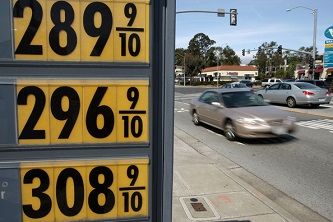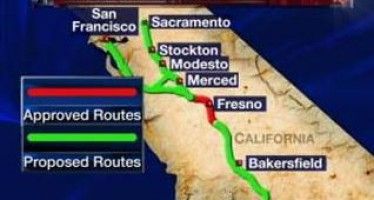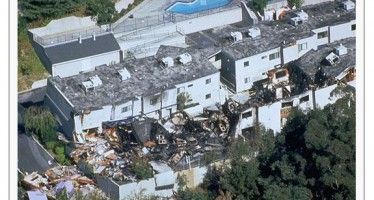Pols’ 2010 gas tax swap made road woes worse
 It’s become an annual ritual: Stories about the State Board of Equalization announcing it is raising or cutting the state excise tax on gasoline come July 1 to honor the fine print of a 2010 budget deal that requires gas excise taxes and gas sales taxes to provide roughly the same annual revenue they did before the deal. If the deal weren’t revenue-neutral, it would have had to pass the Legislature in 2010 on a two-thirds vote. Here’s an FAQ with details on the “gas tax swap.”
It’s become an annual ritual: Stories about the State Board of Equalization announcing it is raising or cutting the state excise tax on gasoline come July 1 to honor the fine print of a 2010 budget deal that requires gas excise taxes and gas sales taxes to provide roughly the same annual revenue they did before the deal. If the deal weren’t revenue-neutral, it would have had to pass the Legislature in 2010 on a two-thirds vote. Here’s an FAQ with details on the “gas tax swap.”
Another California story — politicians declaring the need for much more spending to repair infrastructure, starting with roads covered with potholes — is now akin to a weekly ritual. Gov. Jerry Brown, Assembly Speaker Toni Atkins, Los Angeles Mayor Eric Garcetti and San Diego Mayor Kevin Faulconer are among the many state politicians who have made this case.
But what’s not noted much is that the gas tax shuffle story is directly related to the infrastructure blues story. The reason the rates were adjusted in 2010 was to increase the amount of money raised by gas excise taxes, which can be used in the operating budget, and to reduce the amount of money raised by gas sales taxes. Because of Prop 42 and Prop 1A — two ballot measures that won easy victories from California voters in 2002 and 2006, respectively — gas sales taxes can only be used for road repairs, local transportation projects and a narrow range of needs.
The gas tax swap shifted $1.8 billion from infrastructure and transportation to the general fund. It passed the Legislature on March 4, 2010, on the strength of Democratic votes and with the support of Republican Gov. Arnold Schwarzenegger.
Five years later, Atkins is proposing a $52 a year road-user “fee” to raise $2 billion to pay for infrastructure. Her proposal has drawn a mixed to positive reaction from Democrats, some of whom have their own ideas about how to attack infrastructure needs.
But it has also won praise from those who say it’s about time the state government is taking the lead on infrastructure. The context that is rarely included, however, is that the $2 billion annual infrastructure shortfall was essentially created by the state government in 2010 — specifically, by Schwarzenegger and Democrats.
2010 was a brutal year on the budget front; the state’s spending plan for fiscal 2010-11 didn’t past until the 100th day of fiscal 2010-11. But the gas tax diversion would have been much more defensible if it had a sunset provision. Instead, the way the Legislature and Schwarzenegger handled the maneuver created a permanent new source of revenue for general government operations — despite the wishes of California voters who wanted the money spent on roads and transportation projects.
Chris Reed
Chris Reed is a regular contributor to Cal Watchdog. Reed is an editorial writer for U-T San Diego. Before joining the U-T in July 2005, he was the opinion-page columns editor and wrote the featured weekly Unspin column for The Orange County Register. Reed was on the national board of the Association of Opinion Page Editors from 2003-2005. From 2000 to 2005, Reed made more than 100 appearances as a featured news analyst on Los Angeles-area National Public Radio affiliate KPCC-FM. From 1990 to 1998, Reed was an editor, metro columnist and film critic at the Inland Valley Daily Bulletin in Ontario. Reed has a political science degree from the University of Hawaii (Hilo campus), where he edited the student newspaper, the Vulcan News, his senior year. He is on Twitter: @chrisreed99.
Related Articles
Monday Is Budget Day
Steven Greenhut: The new governor will introduce his budget at 11 am on Monday. Expect it to be austere and
As consultant, bullet-train boss helped write doomed business plan
A lengthy Comstock’s profile of Jeff Morales, the former Washington D.C. and Chicago political operative brought in to save the
Tax break could help quake-proof buildings
Governments use tax breaks to encourage activity. In California, that includes driving electric vehicles and making movies. Now a 30




